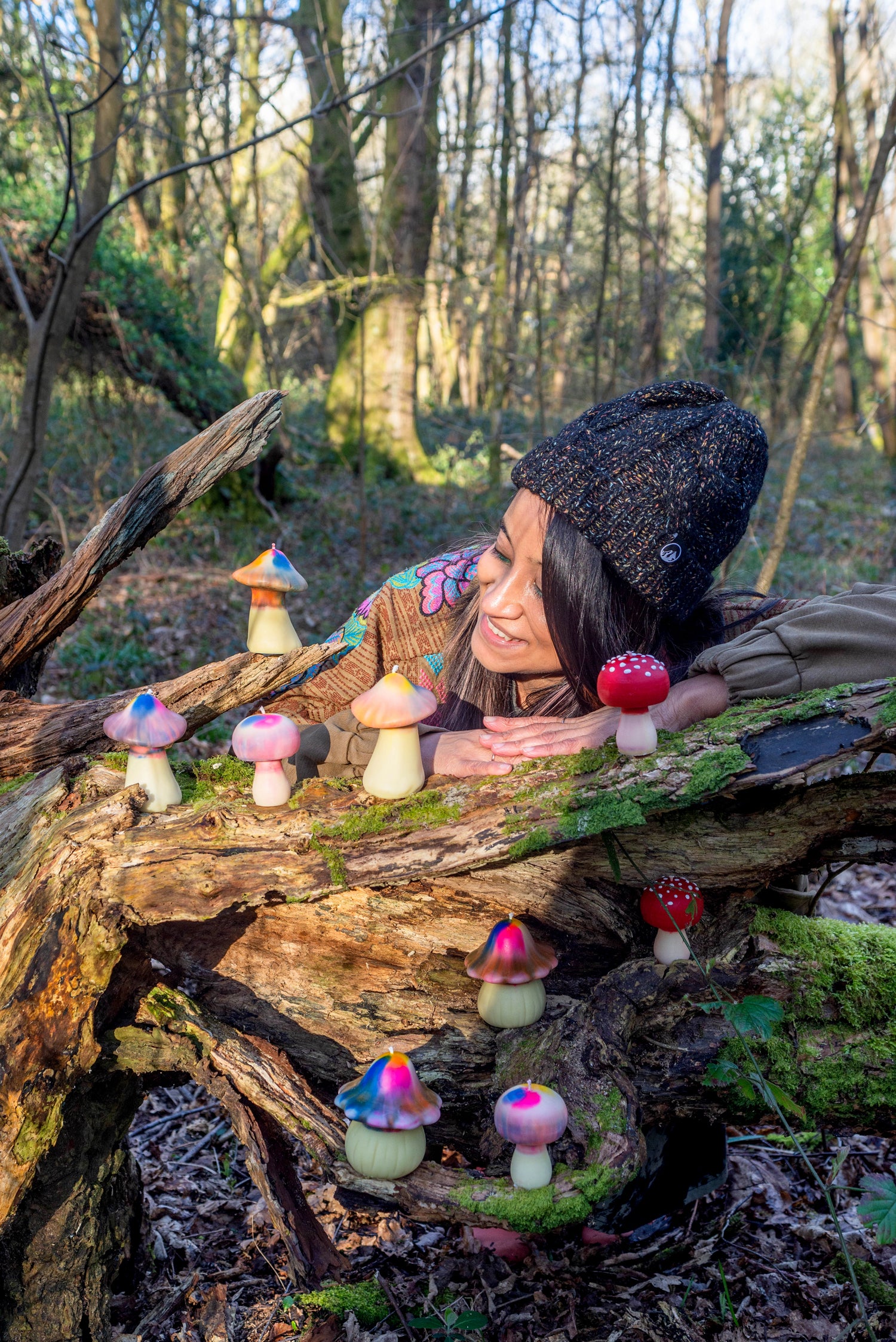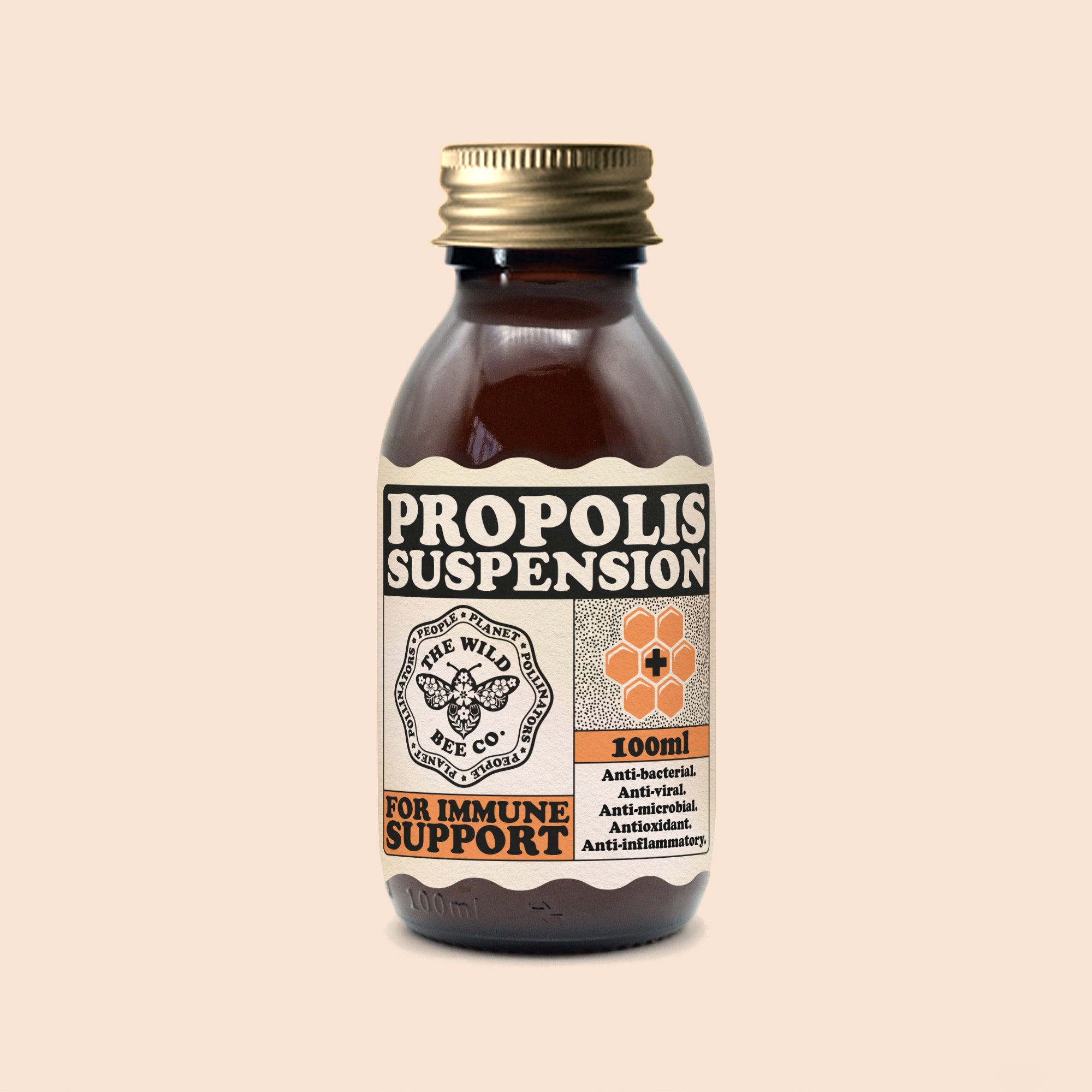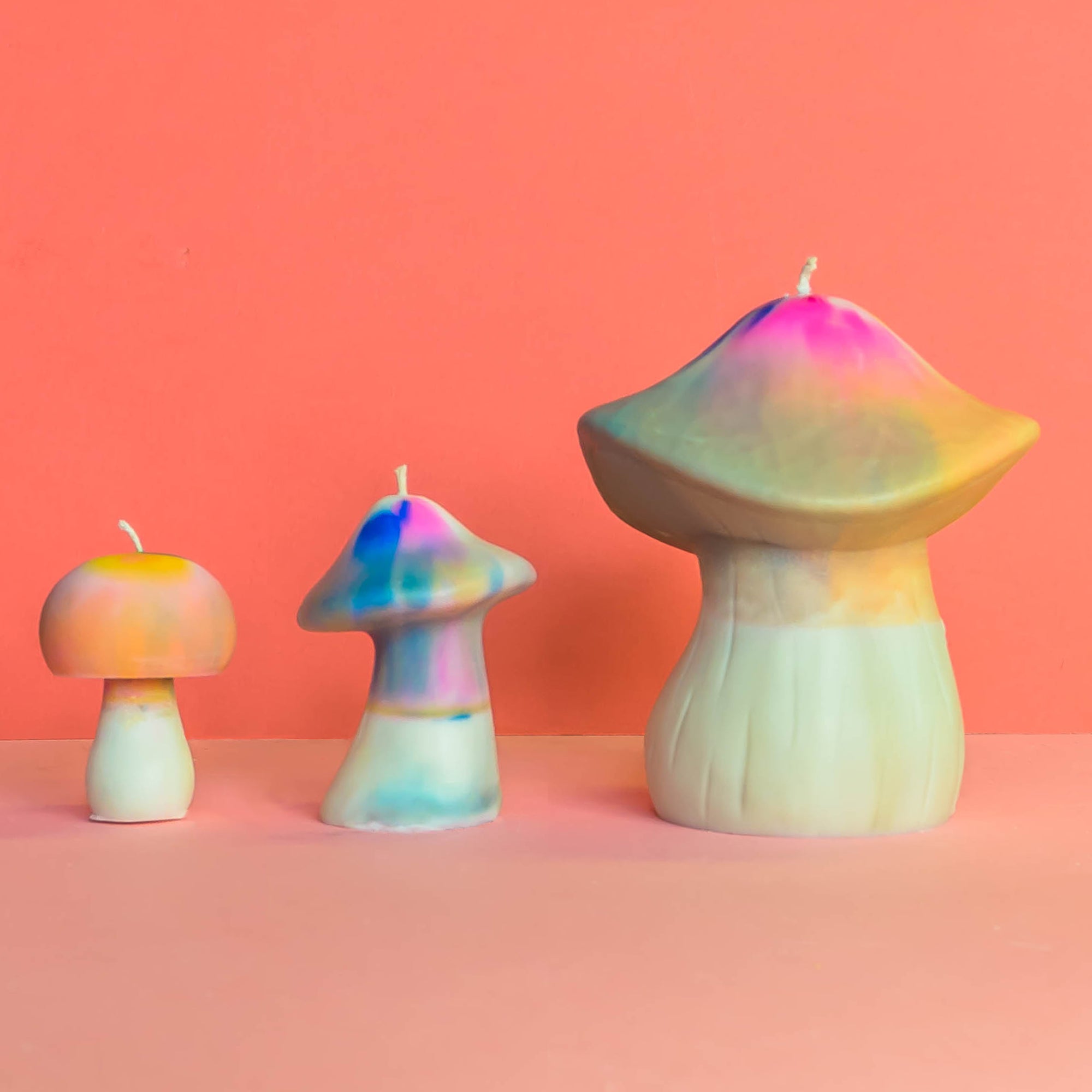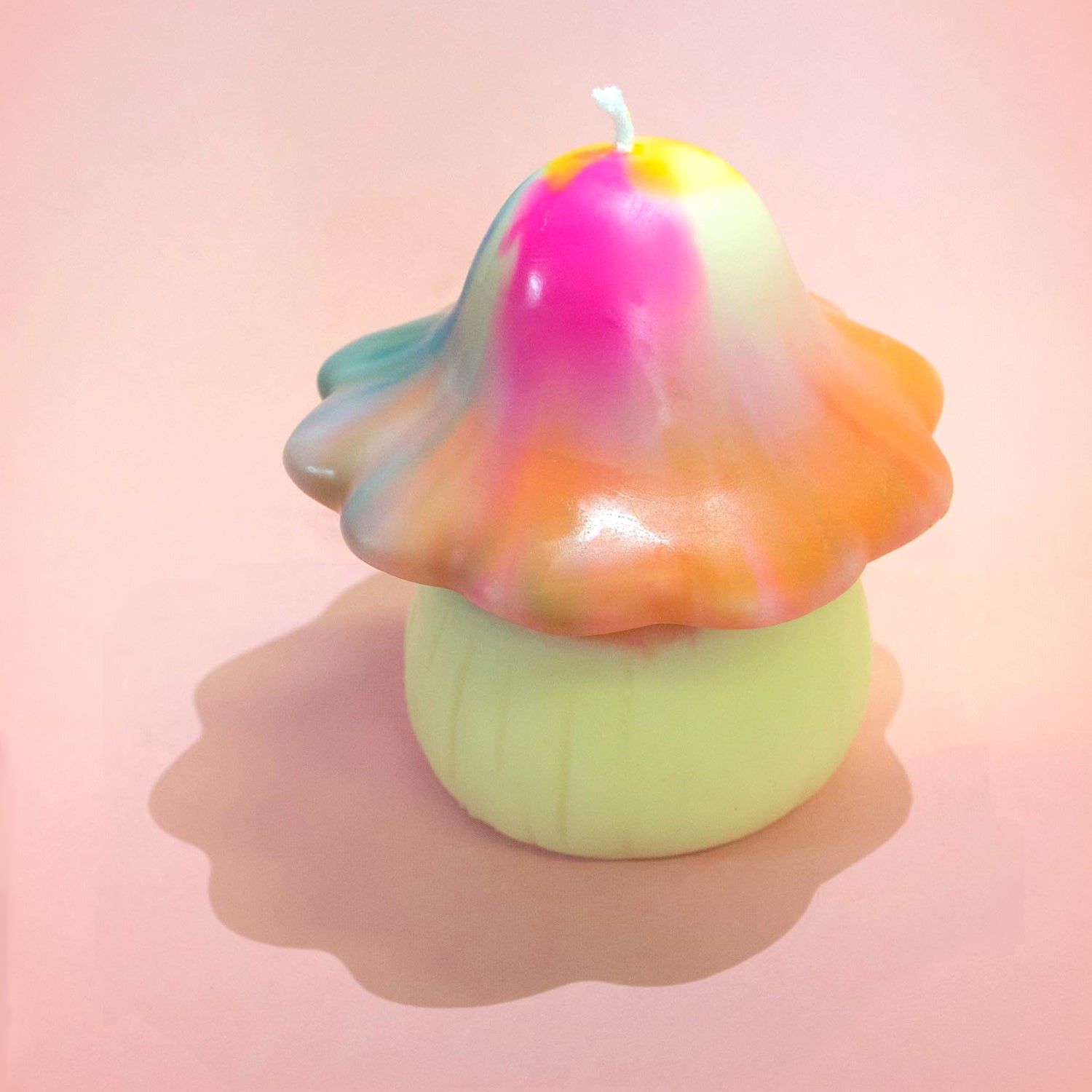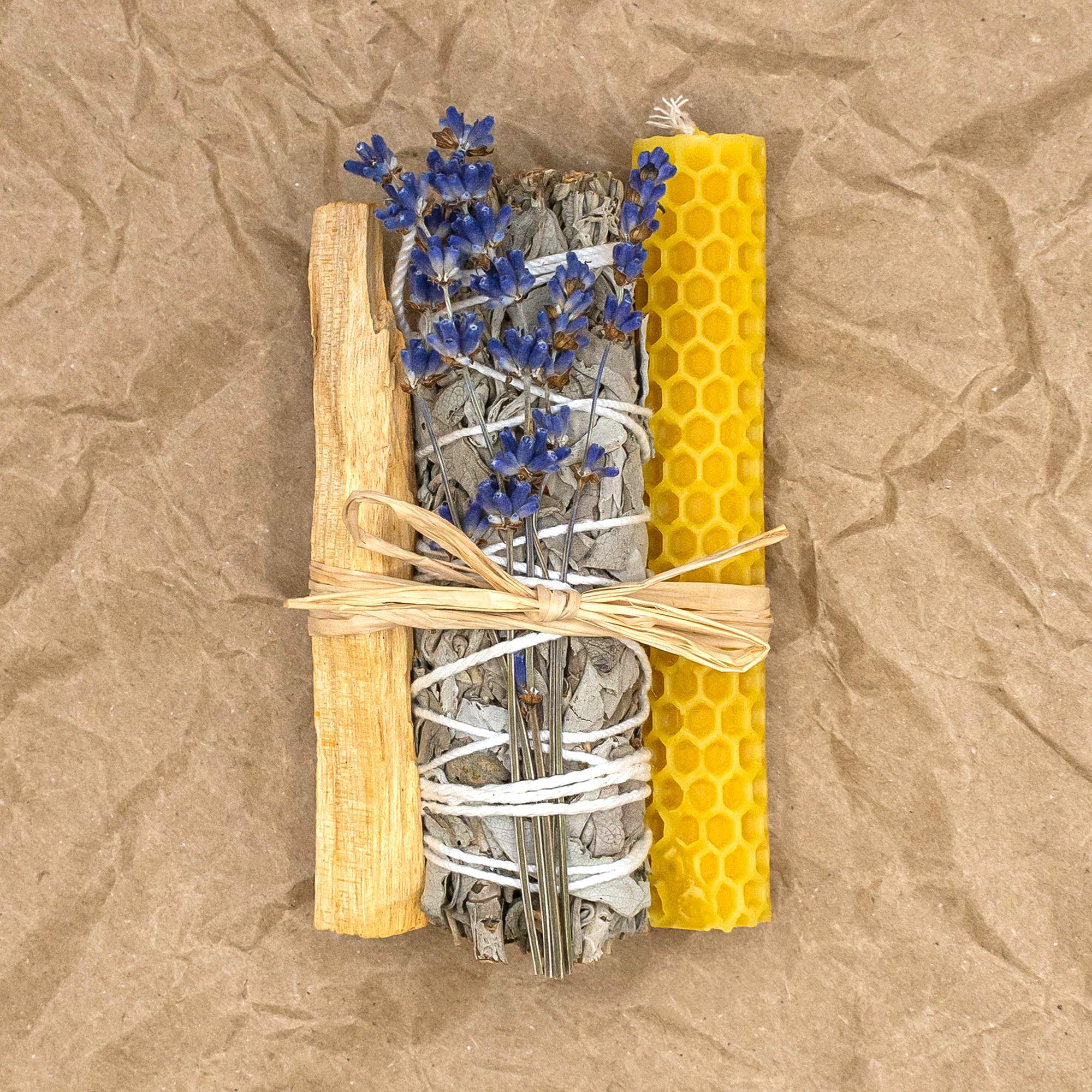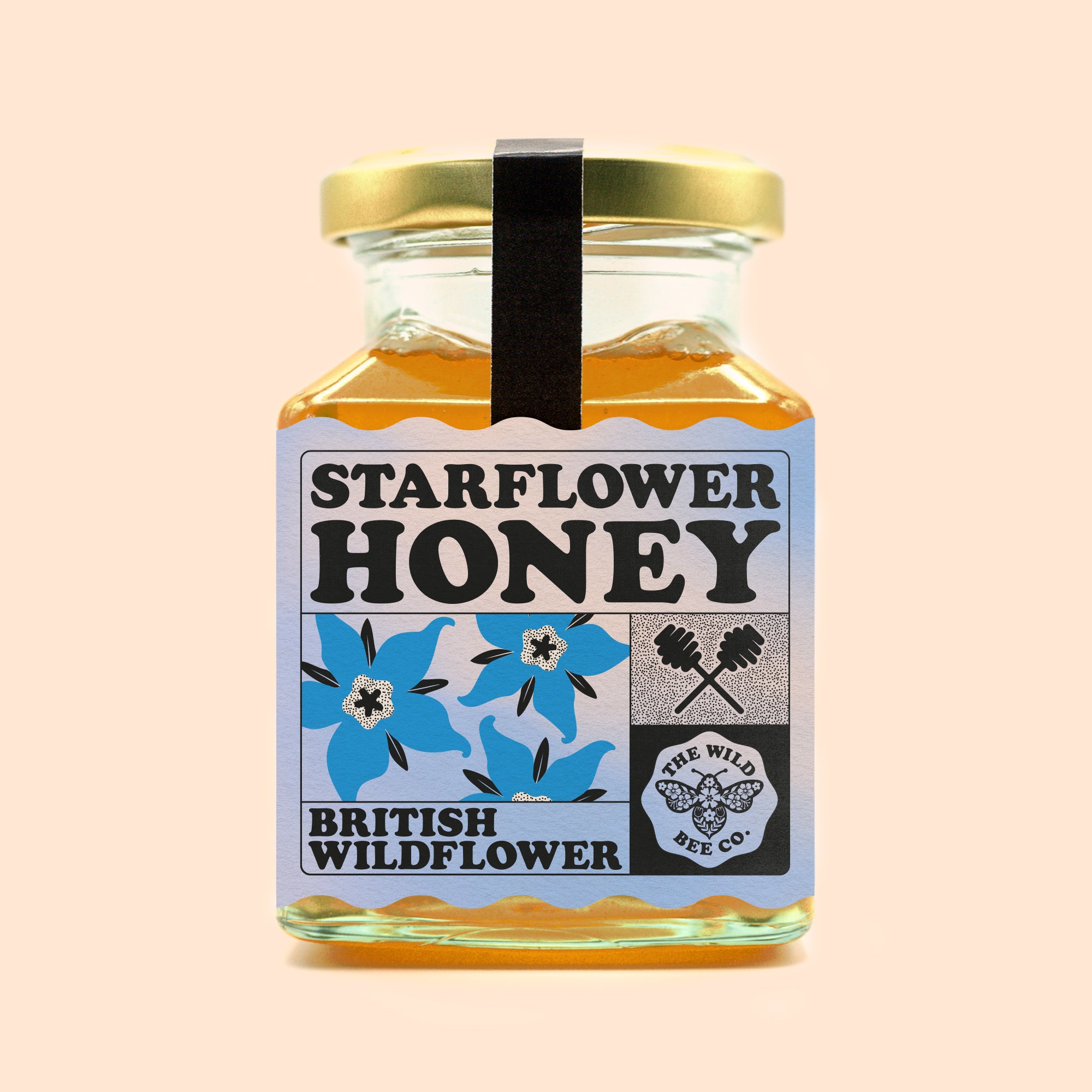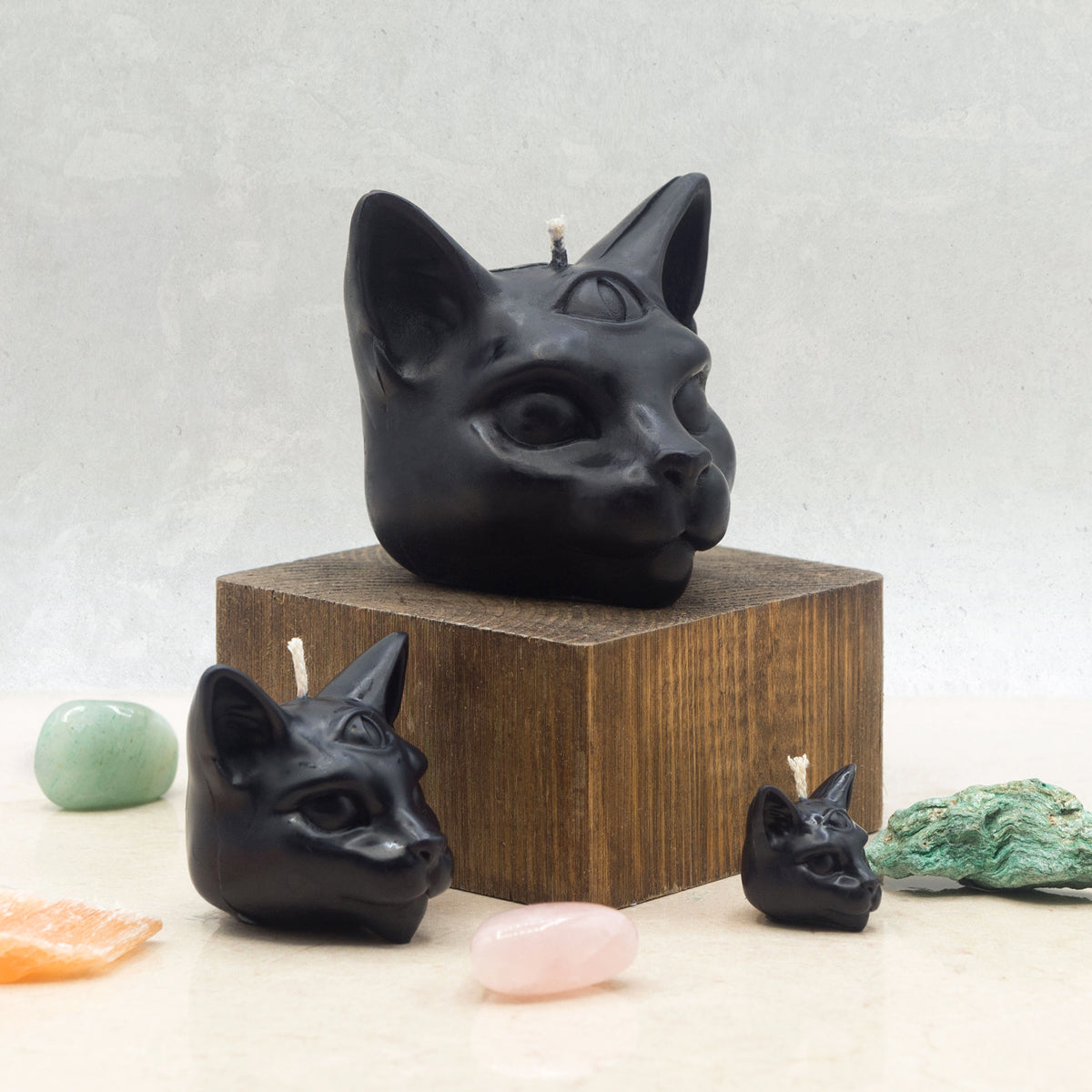
· By Monisha Dajee
“Real Honey Is Not Cheap and Cheap Honey Is Not Real” - It's Not That Simple
“Real Honey Is Not Cheap and Cheap Honey Is Not Real” -You may have seen this slogan doing the rounds lately.
A catchy phrase… but seriously flawed.
Here’s the problem: it’s simply FALSE.
As a beekeeper, I urge you - PLEASE STOP SHARING IT. (although feel free to share my modified versions!)
At first glance, it feels empowering - maybe even supportive of small-scale beekeepers. But when you scratch beneath the surface, this statement is reductive, misleading, simplistic, perpetuates capitalism and can be detrimental to the GLOBAL beekeeping farming community.
It suggests one thing: that PRICE = AUTHENTICITY
Ultimately it UNDERVALUES honey because you're asking the consumer to only look at the price to make an informed decision on what determines authentic honey.
It’s not that simple - let me explain…
Truth #1: Price ≠ Authenticity
The price of honey is not indicative of its authenticity.
Never judge a jar of locally produced honey solely by its price tag.
If I decide to sell my honey for £1 tomorrow, does that suddenly mean it’s no longer real? According to this viral slogan, apparently yes. Which is absurd. And a £250 jar of honey from a luxury retailer? Does the high price guarantee it's unadulterated...absolutely not.
The slogan strips away all the real considerations of how honey is made and who is making it. It reduces it down to one lazy metric: PRICE.
The reality is: AUTHENTICITY IS ROOTED IN TRANSPARENCY OF THE PROCESS, not price.
It’s about where and how the bees are kept, what flowers they forage on, whether the honey is unheated, unpasteurised, unblended, free from syrups and additives, and traceable to a real beekeeper with ethical values.
Here’s a real-life example: a few weeks ago, fellow beekeepers 'Beefolk' shared a beautiful photo of a beekeeper selling their jars for £4. The comment section immediately jumped to judgement - calling it “cheap.” From a business standpoint, I agree - £4 barely covers the cost of the jar and work involved. But it’s up to that beekeeper what they choose to charge. Maybe they’re a hobbyist. Maybe they’re just trying to contribute something beautiful to their community. Maybe they’ve been given a plot of land or inherited equipment. Maybe they are doing it for funzies! Maybe they simply don't want profit to be the goal. This slogan oversimplifies and discredits small-scale producers and silences the many reasons someone might price their honey.
Her £4 honey is just as real as any £14 jar in a fancy farm shop. Affordability doesn’t automatically equal inauthenticity. We genuinely need to stop equating expensive with better. Hey, I used to work for luxury fashion and I can tell you first hand it is not true.
Some beekeepers might choose to price low. Others can’t afford to sell high. Either way - if the honey is raw, local, traceable, ethical, and made with love - it’s REAL.
Truth #2: Honey is Massively Undervalued
In the grand scheme of things - HONEY IS EXTREMELY UNDERVALUED anyway. When you consider the hours of labour, the care for the bees, the cost of equipment, jars, labels, and the unpredictability of nature - most beekeepers are barely breaking even.
Proper honey is priceless. However, as small-scale beekeepers, we are constantly forced to price competitively due to supermarket adulteration and undercutting, pressures of a failing economy, and a broken food system. Profit margins selling and wholesaling honey is incredibly tight.
In truth, honey should cost £25+ a jar in my humble opinion. I know that sounds crazy - but when you understand the labour intensive process, it makes sense. And yet most of us continue to price at £7–£10 just to keep it accessible - even though, truthfully, that’s STILL CHEAP for what it is.
But slogans like “real honey is not cheap” backfire. They create the impression that £7–£10 is ‘on the expensive side’, when in reality, it’s not. Real honey at £10 a jar is still a bargain. It reinforces a false idea that if honey isn’t costly, it must be fake - and that seriously undervalues the time, skill, and care poured into each jar by both bees and beekeepers. So please - don’t reduce authenticity to a price tag.
Truth #3: Expensive Honey Can Still Be Fake
Just because honey is expensive doesn't make it legit. Manuka Honey is a good example - widely respected for its high price tag and yet frequently counterfeited. Britain is importing 3 times as much as Australia and New Zealand is able to physically produce. Adulteration still happens - and at a premium price. EXPENSIVE HONEY does not mean AUTHENTIC HONEY. This is a fact. And again, spreading this slogan is doing so much damage and enforcing capitalism at its finest. Manuka honey commands a high price, and understandably so as its so limited in quantity. One of the largest producers of Manuka honey was found adulterating the honey too. So just because honey is expensive does not mean legit honey. Authenticity comes from the source, not the price sticker.
Truth #4: The Slogan Perpetuates Capitalism & Privilege
Truthfully speaking, this slogan annoyed me on a personal level because it is such a privileged thing to say.
It erases the lived experiences of countless beekeepers around the world. It deeply devalues the honey produced by bee farming communities, like the women's beekeeping initiatives I support in Kenya and Uganda who mindfully produce beautiful, raw, ethical, small-batch honey that is affordable - not because it’s inferior, but because of their local economies, resources, and their intention to make good food accessible. This slogan devalues their honey even though THEY WORK INCREDIBLY HARD AND THEIR HONEY IS EVERY BIT AS REAL. To suggest otherwise is not just misinformed, it's disrespectful. This slogan devalues the labour of communities who are preserving pollinators, traditions, and livelihoods — often in the face of adversity.
Real honey exists across all price points.
Truth #5: Slogan does more harm than good.
We should actually be educating the end consumer on how to make an informed decision when buying honey, and solely looking at the price tag is ridiculous. Authenticity comes from knowing the source of honey, the manufacturing process, the beekeeper. See my checklist on the last slide.
Learn how to spot the real deal:
✅ Crystallises naturally
✅ Unheated, unblended, raw
✅ Syrup-free
✅ Traceable to beekeeper or hive
✅ Tastes different by season and location
✅ Ethically produced
(We’ve created a full checklist in the carousel.)
So next time you pick up a jar, skip the price tag and ask better questions:
-
Who made this?
-
Where are the hives?
-
Is it unpasteurised, unblended, unheated?
-
Does it crystallise naturally?
-
Is it traceable?
Final Thoughts
The slogan “Real honey is not cheap and cheap honey is not real” might sound clever, but it oversimplifies a deeply nuanced, global craft. This isn’t just about this particular slogan. It’s about stopping the spread of well-intentioned misinformation that actually undermines the very people it claims to support. It continues to happen on social media, but just think before you post and question everything.
Expensive honey can still be fake. Cheap honey can still be real.
Know your beekeeper. Know your honey.
Love you, Bye.

Share:
0 comments
WILDCRAFTED - RECIPES, REMEDIES + RITUALS
-
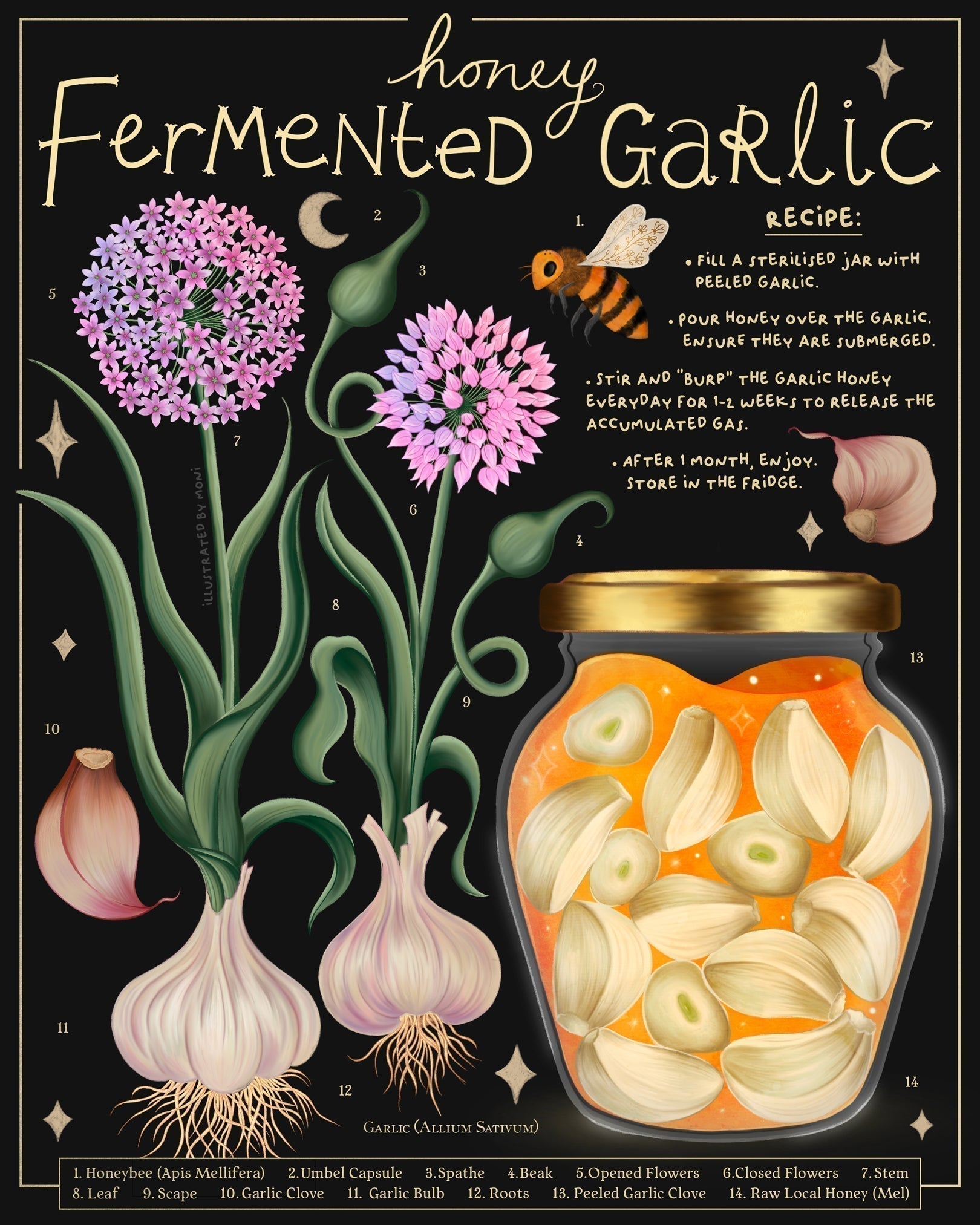
HONEY FERMENTED GARLIC
Fermented garlic honey is a simple yet powerful remedy that combines the ancient art of fermentation to boost the medicinal powers of each ingredient. The origins of fermented honey spans through centuries and various healing practices found within multiple cultures.
-
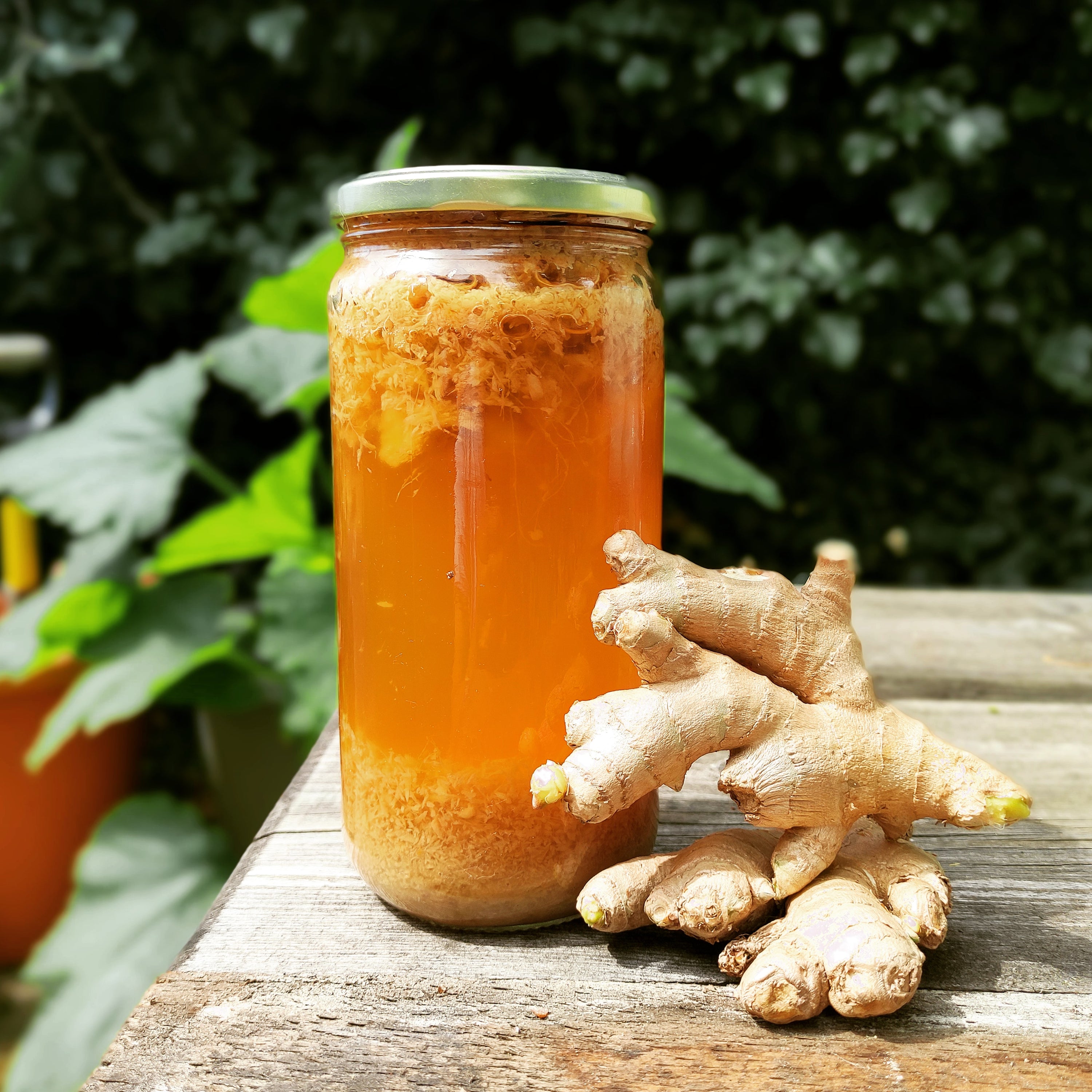
GINGER BUG
Our 5 year old ginger bug is still thriving. 🧡 This week we are preparing to make another batch of homemade, fermented ginger beer, perfect for those sweltering summer days ahead.•If you want to make a ginger beer the traditional...
-
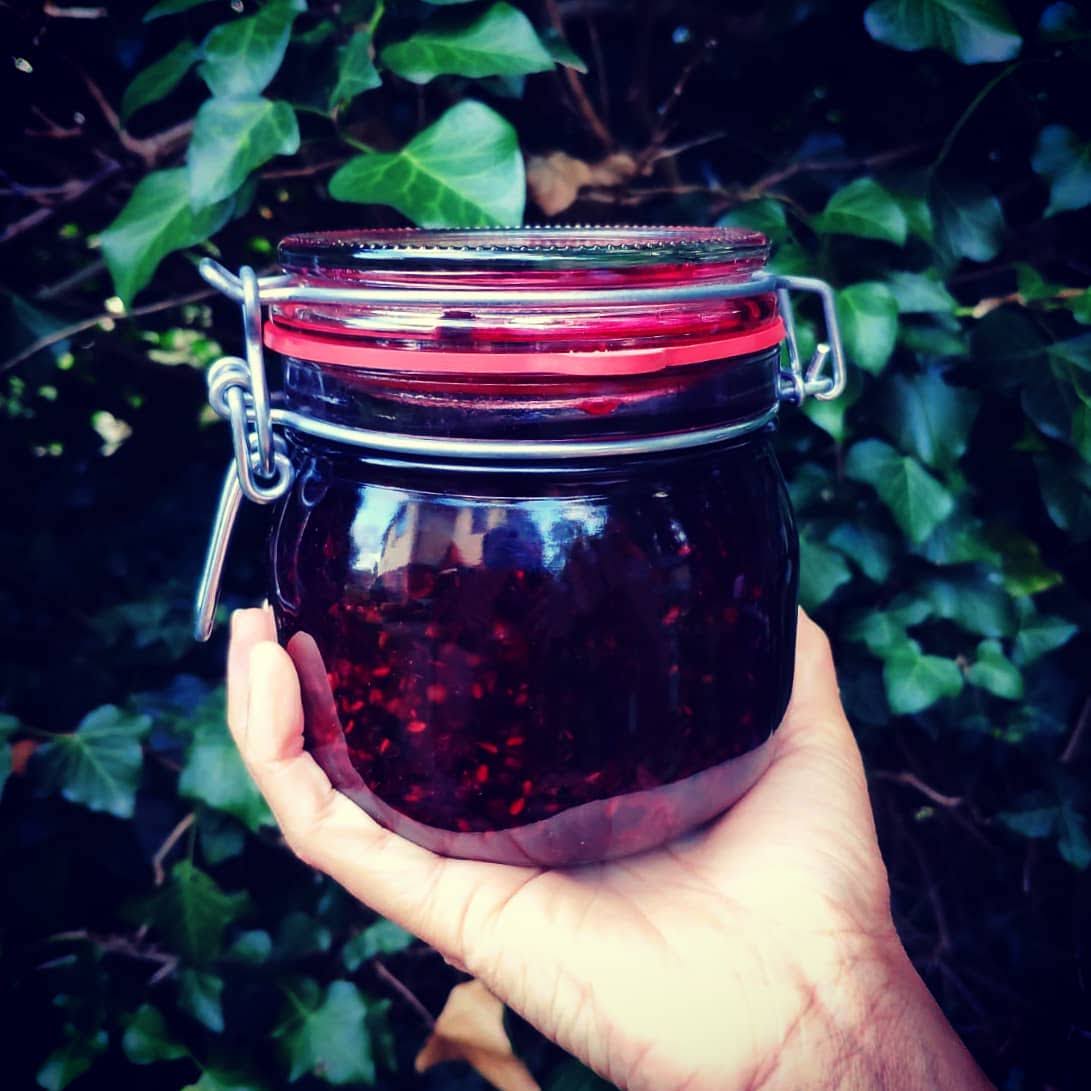
ENCHANTING ELDERBERRY ELIXIR
Her rich clusters of dark, purple berries, are ideal for tinctures and syrups to warn off those colds attempting to creep in this winter. She is truly a generous, magical plant with a plethora of medicinal uses.




